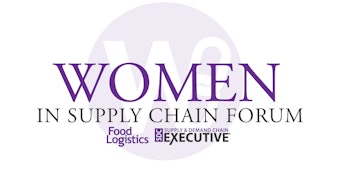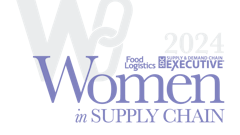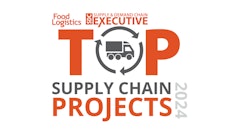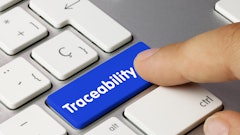Being an ethical company isn't enough anymore. A company is expected to have its entire supply chain ethical. Ultimately, every company finds itself part of a supply chain experiencing ethics or compliance violations. When this happens, chances are the biggest brand in the chain will get blamed.
The supplier-generated ethics scandal is one of the biggest business risks most leading companies face today. The damage is great, and protective measures should be adopted immediately. The good news is that feasible, affordable solutions exist and can quickly be implemented.
What Is the Ethics Problem in the Supply Chain?
Almost every company buys unfinished inputs from other companies before refining and sending them downstream toward their ultimate end-users. Simply put, the problem in the supply chain is that consumers often blame purchasers for ethical lapses that were committed further upstream by suppliers.
It is worth noting that it is not just any company that takes the rap for wrongdoing committed by suppliers. In the typical supplier-related ethics imbroglio, many different purchasers could be hit with the blame. In reality, the blame usually falls on the biggest brand playing any role in bringing the offending product or service to market.
The scapegoat company could be closely associated with the unethical supplier or many steps removed but will always have the biggest reputation to protect. This state of affairs may not be just, but it is how the ethics and compliance game works when ethical violations by suppliers are involved.
No organization or industry is immune to this risk. In 2007 the drama unfolded at eye-catching companies such as Mattel, Del Monte Pet Products, Toshiba and Dole. Each is a real-world example of a leading brand taking the hit for ethics or compliance breaches committed by suppliers.
In these and similar instances, suppliers created the dangerous conditions that captured the public's attention — yet the suppliers' names could not be found in headlines. The biggest brand paid the price. When toy shopping, consumers boycotted Mattel, not the invisible supplier Yip Sing.
Despite the pervasiveness and seriousness of the problem, companies can take a positive step toward inoculating themselves against damaging headlines by implementing a supplier ethics management (SEM) initiative. In fact, boards of directors should make this a priority for 2008.
What is the Current State of SEM?
Most companies do a good job of managing risk categories within their four walls. However, these same companies often fall short managing corporate integrity risk in supply networks.
In a recent survey of Global 2000 companies, Integrity Interactive uncovered the following:
Compliance Officers Should Collaborate with Procurement Colleagues
Few legal and compliance officers at Global 2000 companies possess a list of their company's major suppliers; fewer have adequate contact information. Yet almost all big-company legal and compliance officers want to forge closer relationships with their colleagues in procurement and supplier relations. Why is this?
This internal collaboration is inexpensive, sensible and arguably a "win-win" from everyone's perspective. Increased procurement-compliance interaction will position your organization to declare that it is not enabling or ignoring the ethics problem in the supply chain. And it stands a good chance of preventing the problem from occurring in the first place.
What Can Companies Do Today?
Most Global 2000 companies lack the ability and infrastructure to communicate with their suppliers on ethics and compliance issues. In most cases, this deficiency could be remedied in less than six weeks' time.
A Web-based SEM platform allows a company to collect and maintain contact information for its suppliers and communicate mission-critical ethics and compliance information. Deploying an SEM platform is a fast and easy way to understand ethics and compliance risks in supply chains. SEM platforms are inexpensive and are typically hosted, maintained and administered by third-party vendors that specialize in ethics and compliance risk management.
SEM platforms typically perform several important risk management functions, including:
Supplier ethics management is not a new risk management discipline. SEM involves the application of existing risk management tools, programs and practices to new risk-populations. Your company's legal and compliance professionals know how to manage ethics and compliance risks among your employees. With little additional time, money or administrative effort, they can do the same thing among the companies in your supply chain.
If and when an ethics scandal crops up in your supply chain, your company will be able to credibly say that it has taken proactive steps to regulate and influence supplier conduct and behavior. In the current environment, that is a whole lot better than saying, "Technically, it wasn't one of our employees."
The supplier-generated ethics scandal is one of the biggest business risks most leading companies face today. The damage is great, and protective measures should be adopted immediately. The good news is that feasible, affordable solutions exist and can quickly be implemented.
What Is the Ethics Problem in the Supply Chain?
Almost every company buys unfinished inputs from other companies before refining and sending them downstream toward their ultimate end-users. Simply put, the problem in the supply chain is that consumers often blame purchasers for ethical lapses that were committed further upstream by suppliers.
It is worth noting that it is not just any company that takes the rap for wrongdoing committed by suppliers. In the typical supplier-related ethics imbroglio, many different purchasers could be hit with the blame. In reality, the blame usually falls on the biggest brand playing any role in bringing the offending product or service to market.
The scapegoat company could be closely associated with the unethical supplier or many steps removed but will always have the biggest reputation to protect. This state of affairs may not be just, but it is how the ethics and compliance game works when ethical violations by suppliers are involved.
No organization or industry is immune to this risk. In 2007 the drama unfolded at eye-catching companies such as Mattel, Del Monte Pet Products, Toshiba and Dole. Each is a real-world example of a leading brand taking the hit for ethics or compliance breaches committed by suppliers.
In these and similar instances, suppliers created the dangerous conditions that captured the public's attention — yet the suppliers' names could not be found in headlines. The biggest brand paid the price. When toy shopping, consumers boycotted Mattel, not the invisible supplier Yip Sing.
Despite the pervasiveness and seriousness of the problem, companies can take a positive step toward inoculating themselves against damaging headlines by implementing a supplier ethics management (SEM) initiative. In fact, boards of directors should make this a priority for 2008.
What is the Current State of SEM?
Most companies do a good job of managing risk categories within their four walls. However, these same companies often fall short managing corporate integrity risk in supply networks.
In a recent survey of Global 2000 companies, Integrity Interactive uncovered the following:
- 88 percent of respondents do not maintain a Web-based portal that suppliers can use to receive communications from the purchaser. Of the 12 percent that do maintain such portals, none used them to deliver any compliance- or ethics-related information to suppliers.
- 86 percent of respondents concede that their primary ethics code does not address the conduct of suppliers.
- 59 percent of respondents do not include suppliers in their analysis when assessing their company's ethics and compliance risks.
Compliance Officers Should Collaborate with Procurement Colleagues
Few legal and compliance officers at Global 2000 companies possess a list of their company's major suppliers; fewer have adequate contact information. Yet almost all big-company legal and compliance officers want to forge closer relationships with their colleagues in procurement and supplier relations. Why is this?
This internal collaboration is inexpensive, sensible and arguably a "win-win" from everyone's perspective. Increased procurement-compliance interaction will position your organization to declare that it is not enabling or ignoring the ethics problem in the supply chain. And it stands a good chance of preventing the problem from occurring in the first place.
What Can Companies Do Today?
Most Global 2000 companies lack the ability and infrastructure to communicate with their suppliers on ethics and compliance issues. In most cases, this deficiency could be remedied in less than six weeks' time.
A Web-based SEM platform allows a company to collect and maintain contact information for its suppliers and communicate mission-critical ethics and compliance information. Deploying an SEM platform is a fast and easy way to understand ethics and compliance risks in supply chains. SEM platforms are inexpensive and are typically hosted, maintained and administered by third-party vendors that specialize in ethics and compliance risk management.
SEM platforms typically perform several important risk management functions, including:
- distributing a company's code of conduct and updates to suppliers
- documenting supplier receipts of these requirements
- facilitating two-way communication between a company and it suppliers on topics regarding ethics and compliance.
Supplier ethics management is not a new risk management discipline. SEM involves the application of existing risk management tools, programs and practices to new risk-populations. Your company's legal and compliance professionals know how to manage ethics and compliance risks among your employees. With little additional time, money or administrative effort, they can do the same thing among the companies in your supply chain.
If and when an ethics scandal crops up in your supply chain, your company will be able to credibly say that it has taken proactive steps to regulate and influence supplier conduct and behavior. In the current environment, that is a whole lot better than saying, "Technically, it wasn't one of our employees."

























